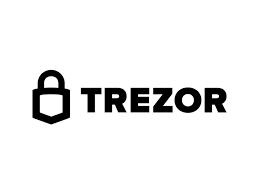5 Best Crypto Wallets in 2023
A crypto wallet is an application that enables users to store keys that access cryptocurrency through a blockchain. You'll also hear the term digital wallet used interchangeably with crypto wallet.
Why Do You Need a Crypto Wallet?
Cryptocurrency is a string of code on a larger blockchain. A blockchain tracks your digital assets. If you intend to be part of crypto trading, decentralized finance (DeFi), or NFTs you need a crypto wallet.
Ownership of crypto is based on a public and private key. In relationship to traditional financial institutions think of the public key as your bank account number and the private key as your PIN. If you lose your private key someone else will have access to your funds.
What Types of Crypto Wallets are Available?
Custodial and noncustodial wallets are the two main types. With a custodial wallet, your keys are stored with a third-party company or cryptocurrency exchange. Noncustodial are the wallets you control yourself. It is your responsibility to manage the keys. Most crypto wallets are non-custodial.
There are two main subcategories of crypto wallets. The first is hot crypto wallets which are internet enabled. The second is a cold crypto wallet that functions offline.
The advantage of a hot wallet is quick access to your funds when you want to make transactions daily. Data is stored on your devices and because it uses the internet it introduces a risk. This is where cold wallets come in. This stores your keys and secret discovery phrase offline. It suits the long-term storage of cryptocurrency.
Hot and cold wallets are broken down into software, hardware, and paper. Software wallets are stored on your computer or mobile device and generally fall into the hot wallet category.
Hardware wallets are non-custodial, hold your private keys, and are not part of your device. By plugging in your hardware wallet most have access to sign cryptocurrency transactions without entering a key. Hackers are avoided. A cold wallet is a type of hard wallet that goes one step further by never using Web3 exploring. This is the way to avoid malicious contract signing.
Paper wallets started early with crypto users keeping track of their keys on paper. Later these included QR codes for scanning. Today, although easily damaged paper wallets are still in use and stored in safety deposit boxes.
There are multiple types of crypto wallets, and it comes down to the digital assets you want to own. Most digital wallets whether from the hot or cold category store Bitcoin, currently the top cryptocurrency. Others are specially designed for Ethereum, or other cryptocurrencies.
What are the best crypto wallets in 2023? Read on!

The 1inch Wallet is a fast and secure self-custodial crypto wallet that retains its decentralized nature enabling users to own their private keys. Available for both Android and IOS, with this app, you can store, send, receive, and trade crypto on multiple chains. This easy-to-use crypto wallet has a sophisticated feature set.
The 1inch Network offers users an easy point of entry into DeFi while providing access to deep liquidity across multiple blockchains. It can be used for hundreds of tokens across all supported networks. Think Ethereum, BNB Chain, Polygon, Arbitrum, Optimism, Gnosis Chain, Avalanche, Klaytn, Aurora, Fantom, and zkSync Era. Gasless swap execution is enabled through the Fusion mode. No need to hold native network tokens.
Additionally, you'll get better rates for crypto swaps than any other single cryptocurrency exchange. 1inch Wallet instantly analyzes thousands of quotes and optimizes fees across multiple DEXes. Save money and time manually checking each exchange for the best swap price. What's more, with ledger support you'll be able to manage your ledger assets quickly and safely.
Let's talk about high-grade security. 1inch smart contracts have been audited by 16 separate projects. According to The Block, this is the highest number of security audits among all DeFi projects. Additional MEV protection ensures all transactions are protected.

2. Ledger
sells hardware wallets, bundles, packs, and accessories. Powered by industry-leading Secure Element chips, along with Ledger's proprietary OS ensures hackers will not have access to your valuable crypto and NFTs with a Ledger hardware wallet.
A popular choice is the NanoX with Bluetooth connectivity, and the capacity to store up to 100 different crypto assets securely in one place. It works with Windows, Mac, Linux, iOS, and Android.
Download the Ledger Live app. It is your one-stop shop that supports 5000 different cryptocurrencies. Explore Web3 securely while buying crypto, growing assets, and managing NFTs. To verify your Ledger Live app is the real deal visit the official Ledger website.

3. Trezor
Trezor designs hardware wallets to ensure your cryptocurrency data is secured against financial theft, coin fraud, and permanent loss of crypto assets. With a Trezor wallet, your crypto assets are locked securely away from internet connection insecurities. Trezor supports Bitcoin, Ethereum, Tether, BNB, and more.
The Trezor Model T is the company's most advanced cryptocurrency hardware wallet. Developed for all users from newbies to seasoned pros, it enables access to buy, trade, and sell coins, or pay for goods and services directly from the app.
With Trezor security is paramount. Limit access to your crypto assets with a user-defined pin of up to 50 digits long. Another security feature is the built-in physical security layer. Each transaction is independently verified. Then, a physical confirmation is sent directly to your Trezor hardware wallet.

4. Exodus
Exodus is a top digital wallet choice for beginners looking to buy cryptocurrency. Available for desktop and mobile Exodus provides users access to a wide variety of over 250 cryptocurrencies. Connect to Ethereum, Solana, BSC, and more with one browser extension.
Its simple interface makes it user-friendly. Keep track of your assets easily with the portfolio for a clear view of your holdings. The built-in exchange provides easy access to purchase and swap your digital assets. You can also store your non-fungible tokens (NFT) here as a bonus.
As for security, the hot wallet Exodus offers extra protection when paired with Trezor. Both Trezor Model T and Trezor One will work.
One of the tools you'll want to access is the educational content section so you can review how your crypto performs. If you need help at any time email Exodus' support team who will reply within the hour.

5. SafePal
SafePal allows users to store keys in their hardware devices while interacting with SafePal software installed in mobile applications and browsers. Manage over 10,000 currencies including Bitcoin and Ethereum. Delve into DeFi and NFTs. Feel secure in the fact that SafePal is backed by Binance Labs part of the crypto exchange Binance.
SafePal S1 Hardware Wallet comes with the features you want. Know Your Client (KYC) which is standard in investment and finance is not required. Nor is registration. With full access to unlimited decentralization applications, you'll also benefit from the ability to manage unlimited tokens all in one device.
Users will enjoy true cold storage with the SafePal S1 Hardware Wallet with a 100% offline air-gapped signing mechanism. This hardware wallet does not connect to Bluetooth, WiFi, NFC, or USB connections. As small and light as a credit card, the SafePal S1 Hardware Wallet is made for life on the go.
Conclusion
The ever-expanding market of cryptocurrency wallets can make the buyer's journey difficult. Understanding how, when, where, and why you will use it will help determine the features you need in a cryptocurrency wallet.
© Copyright IBTimes 2025. All rights reserved.





















